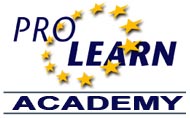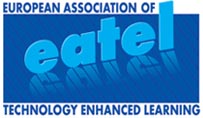Interoperability for Searching Learning Object Repositories
Interoperability for Searching Learning Object Repositories: The ProLearn Query Language, Stefaan Ternier, David Massart (et al.); D-Lib Magazine
Interoperability for Searching Learning Object Repositories:
The ProLearn Query Language
Stefaan Ternier, David Massart (et al.); D-Lib Magazine
The "ProLearn Query Language" is a query language developed for repositories of learning objects. The most relevant standards for describing learning objects are LOM, Dublin Core, and MPEG-7. The IEEE Learning Object Metadata (LOM) is a hierarchical metadata standard usually encoded in XML, published by the IEEE in 2002. Its purpose is to enable the description of learning objects through attributes that include the type of object, author, owner, terms of distribution, and format, as well as pedagogical attributes, such as typical learning time or interaction style. LOM is based on early work in ARIADNE and IMS. Dublin Core (DC) is a standard for generic resource descriptions. The simple DC metadata element set consists of 15 elements, including title, creator, subject, description, publisher, contributor, date, type, format, identifier, source, language, relation, coverage, and rights. MPEG-7 is an ISO/IEC standard for describing multimedia content. MPEG-7 Multimedia Description Schemes (DSs) are metadata structures in XML that facilitate searching, indexing, filtering, and access. PLQL is primarily a query interchange format, used by source applications (or PLQL clients) for querying repositories (or PLQL servers). In this article, we give a precise description of the semantics of PLQL, concerning both kinds of clauses and their mutual relationship and describe two experimentation efforts around PLQL: one involving the ARIADNE repository and the other the EUN Learning Resource Exchange initiative. We present PLQL as an emerging standard for querying worldwide, heterogeneous learning object repositories. This work has followed on the heels of previous achievements in defining SQI (the Simple Query Interface), a unified access point to distributed and heterogeneous repositories. PLQL is a "query interchange format"
accommodating the great diversity of the different repositories and their capabilities. PLQL combines exact and approximate search, and supports queries on XML-based hierarchical metadata. PLQL was designed in a way that allows for easy mapping to various paradigms for metadata management. So far, we have mapped PLQL to Lucene, XML Query (XQuery), and SQL. Apache Lucene is an important deployment context for PLQL as this open source toolkit for text indexing and searching is widespread and easy to use. XQuery is the W3C recommendation for querying XML data; with this mapping, all PLQL levels can be mapped and executed on XML database systems.
http://www.dlib.org/dlib/january08/ceri/01ceri.html
See also the Wiki: http://ariadne.cs.kuleuven.be/lomi/index.php/QueryLanguages





